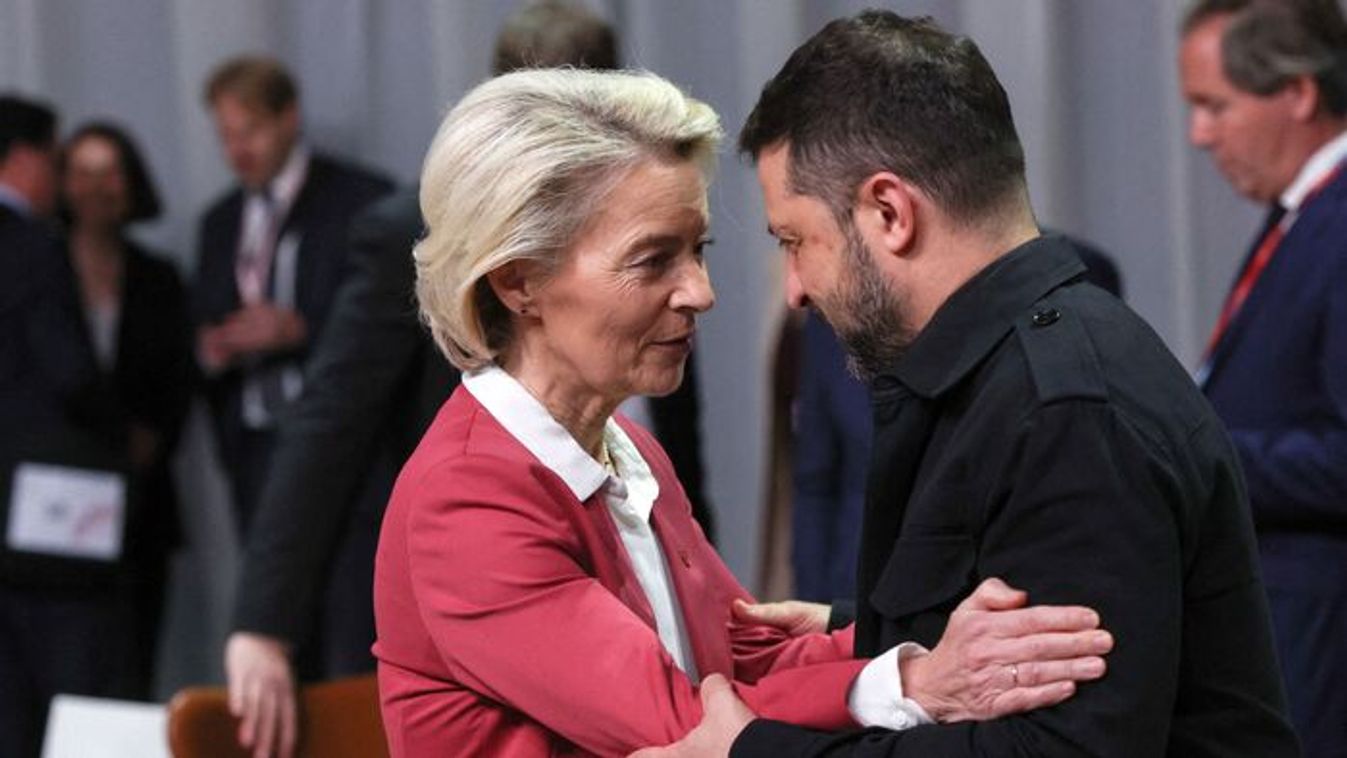Csak két perc: videón a legdurvább ukrán fenyegetések Zelenszkijtől a rettegett ukrán őrnagyig

Magyarország katonai megszállásától a választási eredmények megtámadásáig – minden belefér az EU-s csatlakozást követelő ukrán megszólalók szerint.

“The mindless proliferation or invention of rights to address ever-more-specific groups and issues also undermines the principle of universality that lies at the core of international human rights. In most cases, the major problems in the world today do not require new rights but rather implementation of those that are already recognized” – Hurst Hannum, professor of internatiol law at the Tufts University pointed out in a conversation with Lénárd Sándor, researcher at the National University of Public Service

As we are slowly approaching to the 75th anniversary of the adoption of the Universal Declaration of Human Rights, we have to recognize that human rights have become a universal common good. However, there are many old and new challenges. One of them is the proliferation of new claims of rights since human rights have become the dominant mode of discourse of the modern era as the late Jonathan Sacks put it. How, in your view, does the emergence of new claims of rights could pose a threat to the human rights system?

What we today know as “human rights” are more accurately described as international human rights law. While the 1948 Universal Declaration of Human Rights was only a “common standard of achievement,” its catalogue of civil, cultural, economic, political, and social rights was soon expanded and codified in binding UN and regional treaties.
The norms initially formulated in 1948 have been subsequently interpreted and expanded to adapt to the social and political changes that have occurred since the mid-20th century. This is a natural process, and few people would argue that it was inappropriate to adopt specific treaties on, for example, non-discrimination based on race or sex, children’s rights, or the abolition of torture.
At the same time,
the careless use of “human rights” will soon reduce human rights to ridicule.
For example, the Foreign Minister of Ecuador claimed that the founder of Wikileaks, Julian Assange, had a “fundamental right” to sunbathe during his refuge at the Ecuadorean embassy in London. Chinese government officials have repeatedly argued that the Chinese people have a “human right” to host the Olympic Games. A book published by Oxford University Press in 2015 asserts that children have a human right to be loved.
Even more serious attempts to expand the catalogue of human rights may diminish their credibility. Proposals to link human rights to development, the environment, the criminalization of sex work, cultural diversity, foreign debt, the use of mercenaries, and corruption may represent legitimate social concerns or aspirations, but they go far beyond the already expansive rights proclaimed in international law.
The mindless proliferation or invention of rights to address ever-more-specific groups and issues also undermines the principle of universality that lies at the core of international human rights. In most cases, the major problems in the world today do not require new rights but rather implementation of those that are already recognized. If new rights are ignored or do not enjoy sufficient support to be implemented, truly universal human rights may well be lost in the shuffle.
Another challenge is the principle of “subsidiarity” that holds together the universality of human rights and the pluralism necessary to their practical realization. How do you see this challenge and what role do local communities and national sovereignty play in realizing human rights?
The topic of universality versus relativism (or pluralism) has been debated since the beginning of the human rights era. Identifying rights that are truly applicable to every country, every government, and all individuals is a daunting task. It is possible only if we also recognize that the precise form in which rights are implemented must reflect the specific social, political, and economic circumstances in which they are being applied.
The key is to recognize that there is a balance to be struck, in which universal norms are meaningfully respected without demanding that every society adopt identical cultural, social, and political values. One example may be found with respect to the rights of women. There is no question that women must not be discriminated against – in education, employment, politics, the arts, or elsewhere. Equality of treatment before the law is mandatory. However, the right of every woman to work, for example, neither requires nor prohibits mathematical equality in every sphere of life. For example, family dynamics that favor or disfavor women’s roles outside the family and women’s own choices between work and family are beyond the reach of human rights’ primary goal of regulating the relationship between the state and those within its jurisdiction.
Another, probably less controversial, example is the right to a fair democratic elections to determine the will of the people, which nonetheless permits a wide range of electoral systems to be used to accomplish this goal and be true to “democracy”.
Cultures do and should change to reflect changing social norms, but human rights generally have only an indirect (although important) impact on culture.
Human rights do impose legal obligations on governments, however, and fulfilling those obligations will allow social and other change to be guided by the many, not only by the few, the rich, and the powerful.
What approach do you suggest taking in your recent book Rescuing Human Rights. A Radically Moderate Approach to help human rights retain their legitimacy and impact?
Human rights have made a remarkable difference in the lives of people around the world, both in theory and in practice. They have mobilized advocates demanding their rights, and almost every government publicly claims to support human rights, even if the reality leaves much to be desired. Human rights treaties are overseen and promoted by dozens of institutions within the United Nations and regional systems in Europe, the Western Hemisphere, and Africa.
There is no international police force that can enforce rights, and the reputation of human rights rests on their legitimacy and credibility. Unfortunately, as already noted, both governments and advocates have stretched the meaning of rights well beyond the universal, and the mantra of “human rights” has been applied to almost every socio-economic-political ill in the world.
A “radically moderate approach” is one that recognizes the limits as well as the potential of human rights.
It does not assume that ensuring human rights is co-extensive with progressive politics. It accepts the importance of all categories of rights – civil, political, economic, social, and cultural – but it does not demand that every political and economic system look the same. In sum, it is realistic and persistent, and it seeks not to undermine rights by expanding them beyond recognition or expecting more from them than they can achieve.
The rising impact of non-governmental entities including corporations on human rights might pose a new challenge. For historical reasons, we are used to think that human rights are designed to impose limits solely on the regulatory reach of governments that exercise public powers. However, especially in light of the emergence of economic and information globalization, this reading might turn out to be a bit misleading. How do you see the growing impacts of companies on human rights?
There is no doubt that multinational and domestic businesses have caused widespread harm to individuals in countries in which they do business, particularly due to environmental degradation, unsafe products, and poor working conditions. Many of them are more powerful than the governments whose task it is to regulate them for the benefit of the population at large.
However, business also makes crucial contributions to development and innovation, not to mention the communications and technology revolution that has occurred over the past several decades.
The challenge is to ensure that businesses are accountable for harms that they cause,
without confusing that accountability with the obligations of governments to ensure human rights.
What regulatory roles do states play in protecting human rights against corporate behavior?
The issue is not whether transnational corporations, in particular, should be regulated but rather how and by whom. Every country has jurisdiction over acts that occur within its territory, so there is no legal impediment to governments imposing taxes and liability on business, whether domestic or transnational. Companies, as well as individuals, are liable for any harm that they cause under domestic tort law.
A number of OECD countries are considering how far to go in regulating transnational companies whose primary headquarters are within their territory. Such an extraterritorial extension of their jurisdiction has many critics, and advocates must be wary of having corporate liability determined primarily by rich countries. Such an exercise of authority smacks of neocolonialism, to say the least, and it does not address the culpability of incompetent or corrupt governments in the Global South.
When we talk about the “impacts of companies on human rights,”
we ask both too much and too little.
It is too much to expect companies to comply with all of the human rights obligations of a state, such as fair elections and trials, protecting freedom of religion, or providing health care. It is too little to expect companies to be concerned only with their legal obligations, as opposed to broader ethical responsibilities to do business honestly, contribute to charitable causes, treat their workers with respect, and simply to be good neighbors in the communities in which they operate. This broader approach was initially known as Corporate Social Responsibility, and it often offers a much better way to influence corporate behavior than merely to throw the phrase “human rights” around.
The United Nations Guiding Principles on Business and Human Rights were adopted ten years ago. This is the first authoritative UN framework to address business impact on all human rights. What, in your, are their strengths and shortcomings?
The UN Guiding Principles remain the most significant articulation of the connection between business activities and human rights. Unfortunately, they suffer from a number of weaknesses.
First, the Principles are very expansive, both in their application to all human rights and to all “business enterprises regardless of their size, sector, operational context, ownership, and structure.”
Second, the Guidelines explicitly do not create “new international legal obligations” and thus remain exactly what their title implies. i.e., a set of guidelines or recommendations that businesses are free to adopt or reject. States do not accept any new obligations either, although they are required under current human rights law “to protect against human rights abuses [which remain undefined] by third parties, including business.”
Third, confusing the non-binding “responsibility” of business with the legally binding “obligations” of the state undermines the latter without strengthening the former. Such confusion offers yet another opportunity for critics to denigrate human rights as meaningless, since any actions taken by businesses remain purely voluntary.
After several failed attempts, there is a renewed effort to draw up a legally binding treaty on transnational corporations and other business enterprises with respect to human rights. Do you think that the treaty should recognize transnational corporations as subject of international law having international legal obligations or do you think that the treaty should rather lean on and reinforce the state’s regulatory powers? What would be the most effective way forward?
The UN began in 2014 to discuss adopting a “legally binding instrument” to regulate business activities that lead to “human rights abuses”. A second draft of the detailed instrument was presented in 2020, but governments continue to have serious disagreements over its substance and scope. For example, the African Group and many developing countries maintain that the instrument should apply only to transnational business, not domestic enterprises. The European Union observes that text has “substantial shortcomings” and “a number of elements that are unclear or ambiguous, in particular regarding issues of scope of the LBI, the regulation of civil and criminal liability, applicable law and jurisdiction, or the relationship with existing international instruments on judicial cooperation.” The UK calls the draft “too vague to be workable” and believes that “the legal liability provisions create unrealistic burdens on business”. The US under both Obama and Trump refused to participate in the “open-ended intergovernmental working group” discussing the proposed text.
The proposed binding instrument does little beyond asking that states regulate business in ways that are already within every country’s jurisdiction.While a treaty might focus additional attention on the need to hold companies accountable, the continuing lack of consensus and the expansive nature of the text are, in Shakespeare’s words,
“full of sound and fury, signifying nothing”.
Many are of the opinion that today’s world is somewhat similar to the “Gilded Age” of the late 19th century’s America that was marked by the rise of corporate giants who stifled competition. As result of transnational as well as platform-based business models, monopolies are increasingly emerging. How in your view does monopoly power impact on human rights?
Monopolies, anti-trust laws, and the concentration of power in the areas of communication, media, and technology certainly have profound impacts on today’s societies. Rights – such as freedom of expression, the right to privacy, and the right to free and fair elections – do provide the context in which the extent of government regulation of such power should be considered. A state’s obligation to ensure economic and social rights must also be borne in mind, since concentration of private economic power, tax avoidance, and distortions in a country’s economy may undermine the government’s ability to fulfill such rights.
At the same time, human rights do not require that states adopt any particular economic system. Even a rights-based approach will not automatically answer the question of how to balance issues of economic policy, taxation, employment, and the “best” form of development. Other political and ethical principles -- including fairness, equity, and how wealth and power are best distributed in a free society – must also be taken into account.
Anti-trust concerns, in particular, are complicated matters in which the “public interest” is one factor that must be weighed against the impact of monopolies on competition.
These and similar issues should be determined primarily by decisions based on politics and economics, and human rights on their own cannot offer simple answers.